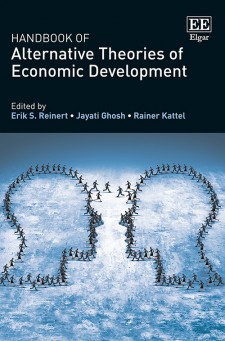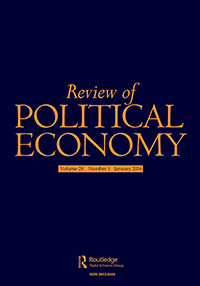Entrevue Institut des Amériques, 22 février 2017.
Robert Boyer, Économiste et membre du Conseil scientifique de l’IdA, analyse les relations Etats-Unis / Mexique depuis l’élection de Donald Trump et nous présente 5 scénarios.
in Handbook of alternative theories of Economic Development, edited by Erik S. Reinert, Jayati Ghosh and Rainer Kattel, Edward Elgar, Chettelham, September 2016, p. 352-385.
Abstract
The Handbook of Alternative Theories of Economic Development explores the theories and approaches which, over a prolonged period of time, have existed as viable alternatives to today’s mainstream and neo-classical tenets. With a total of more than 40 specially commissioned chapters, written by the foremost authorities in their respective fields, this volume represents a landmark in the field of economic development. It elucidates the richness of the alternative and sometimes misunderstood ideas which, in different historical contexts, have proved to be vital to the improvement of the human condition. Learn More
Paper prepared for the « Forum de la régulation« ,
La théorie de la régulation à l’épreuve des crises, Paris 10-12 juin 2015
Review of Political Economy, January 2016, Vol 28 (1), p. 1-22.
Table ronde « Nuevas dinamicas de las relaciones Asia/Americas« , Casa de Francia, Lunes 18 de Enero 2016, Mexico (Mexique)



